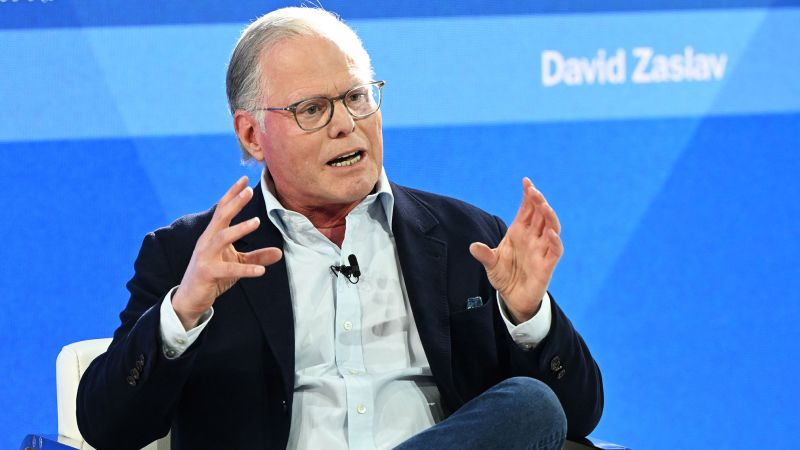Warner Bros. Discovery, the multinational mass media and entertainment conglomerate, has found itself in the spotlight following a recent vote by its shareholders. On Tuesday, a significant proportion of the company’s shareholders took a stand against the executive compensation packages proposed for 2024. Notably, the vote included the pay package for the company’s CEO, David Zaslav, which exceeded an eye-popping $50 million.
According to a regulatory filing that emerged from the company’s annual meeting, nearly 60% of shareholders cast their votes against the executives’ pay packages. It is important to note that this vote is symbolic and non-binding, meaning it does not legally compel the company to change its decisions regarding compensation. However, such a response from shareholders highlights growing concerns over executive pay, particularly in a time when the company’s stock performance has been under scrutiny.
To provide some context, last year’s vote on executive compensation ended with a narrower margin in favor of approving the pay packages – a slim 53% of shareholders supported the proposal. This shows a notable change in sentiment among the shareholders, perhaps reflecting diminishing confidence in the leadership, especially as it relates to the financial trajectory of Warner Bros. Discovery. The company itself is the parent organization of CNN, a major news network in the United States, which underscores the significant influence of executive decisions in shaping public discourse.
David Zaslav has been at the helm of Warner Bros. Discovery since its inception in 2022, following the merger of WarnerMedia and Discovery, Inc. His compensation was reported at approximately $51.9 million for the previous year, a figure that incorporates not just salary but also equity awards and other forms of remuneration. Despite these high figures, Warner Bros. Discovery’s stock (traded as WBD) witnessed a decline of 7% in 2024, an alarming trend given the thriving performances of competitors like Netflix and Disney.
In stark contrast to the struggles faced by Warner Bros. Discovery, the stock of Netflix surged by more than 80% in 2024, while Disney’s stock appreciated by 24%. Netflix co-CEOs, Ted Sarandos and Greg Peters, received hefty compensations of $61.9 million and $60.3 million, respectively, while Disney’s CEO Bob Iger earned $41.1 million. These figures present a vivid comparison and raise questions about how shareholder sentiments are influenced by the comparative performance of industry leaders.
Moreover, the broader S&P 500 index posted a remarkable gain of over 23% last year, effectively underscoring the substantial divide between Warner Bros. Discovery and its peers. This statistic, juxtaposed with the decline in their stock, could have contributed significantly to the discontent among shareholders regarding executive pay, casting a spotlight on the need for corporate governance and oversight.
As developments unfold, Warner Bros. Discovery has not offered any comments regarding the shareholders’ vote or the ongoing compensation issues. The lack of a response may suggest a level of discomfort or a strategic decision to refrain from commenting while objectively assessing the implications of the shareholder discontent.
In conclusion, the recent shareholder vote against executive pay packages at Warner Bros. Discovery speaks volumes about dissatisfaction among investors. The significant discrepancy between executive compensation and company performance could represent an urgent need for a reevaluation of governance practices within the company. As media landscapes continue to evolve, shareholders will likely persist in voicing their concerns regarding executive remuneration, especially in relation to performance benchmarks against key rivals in the industry.











